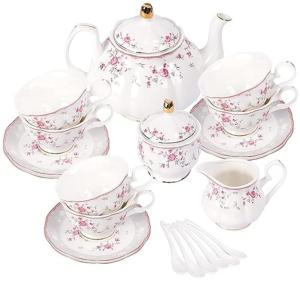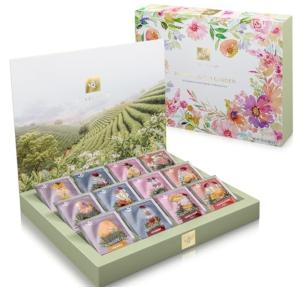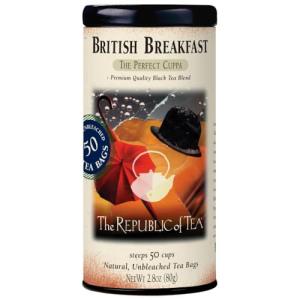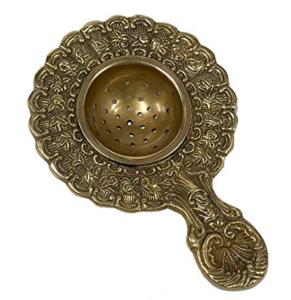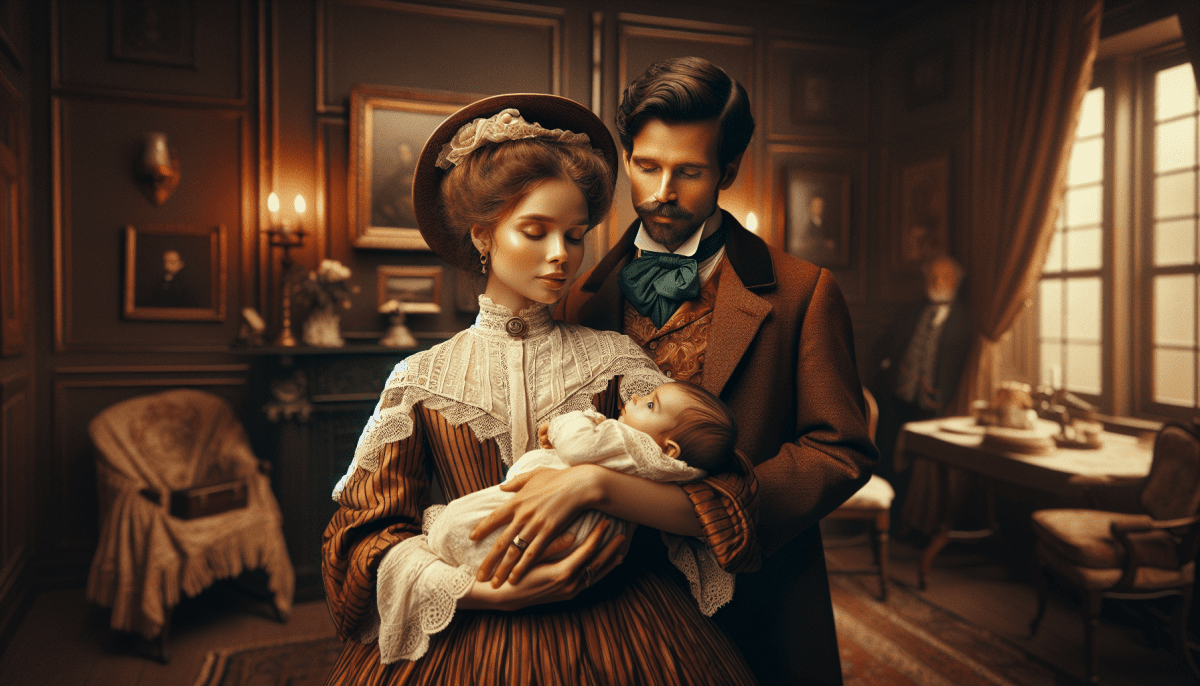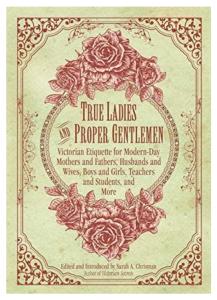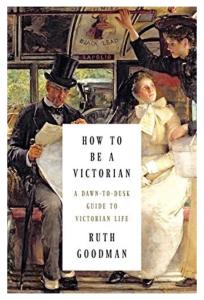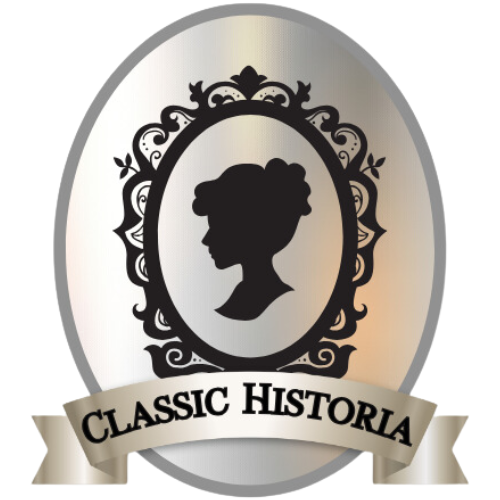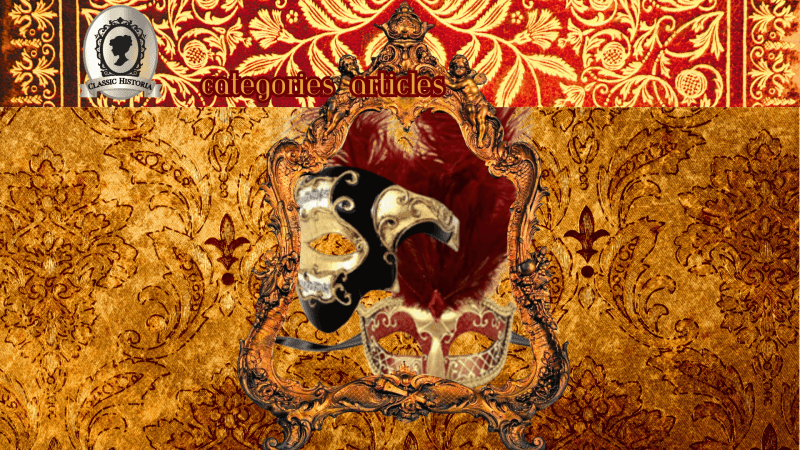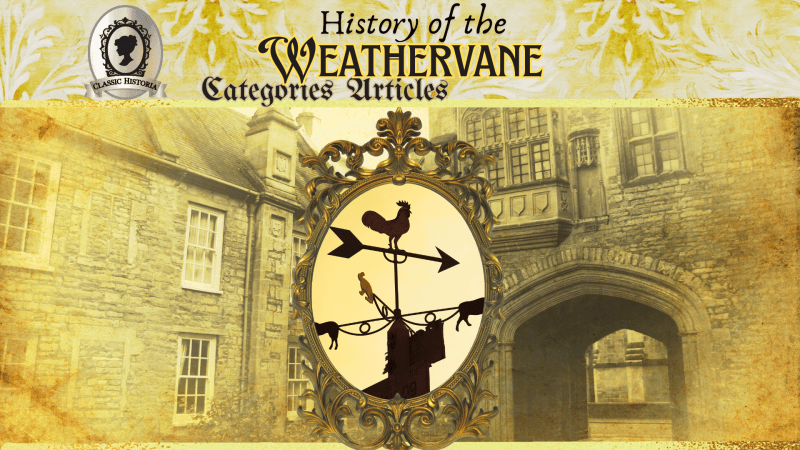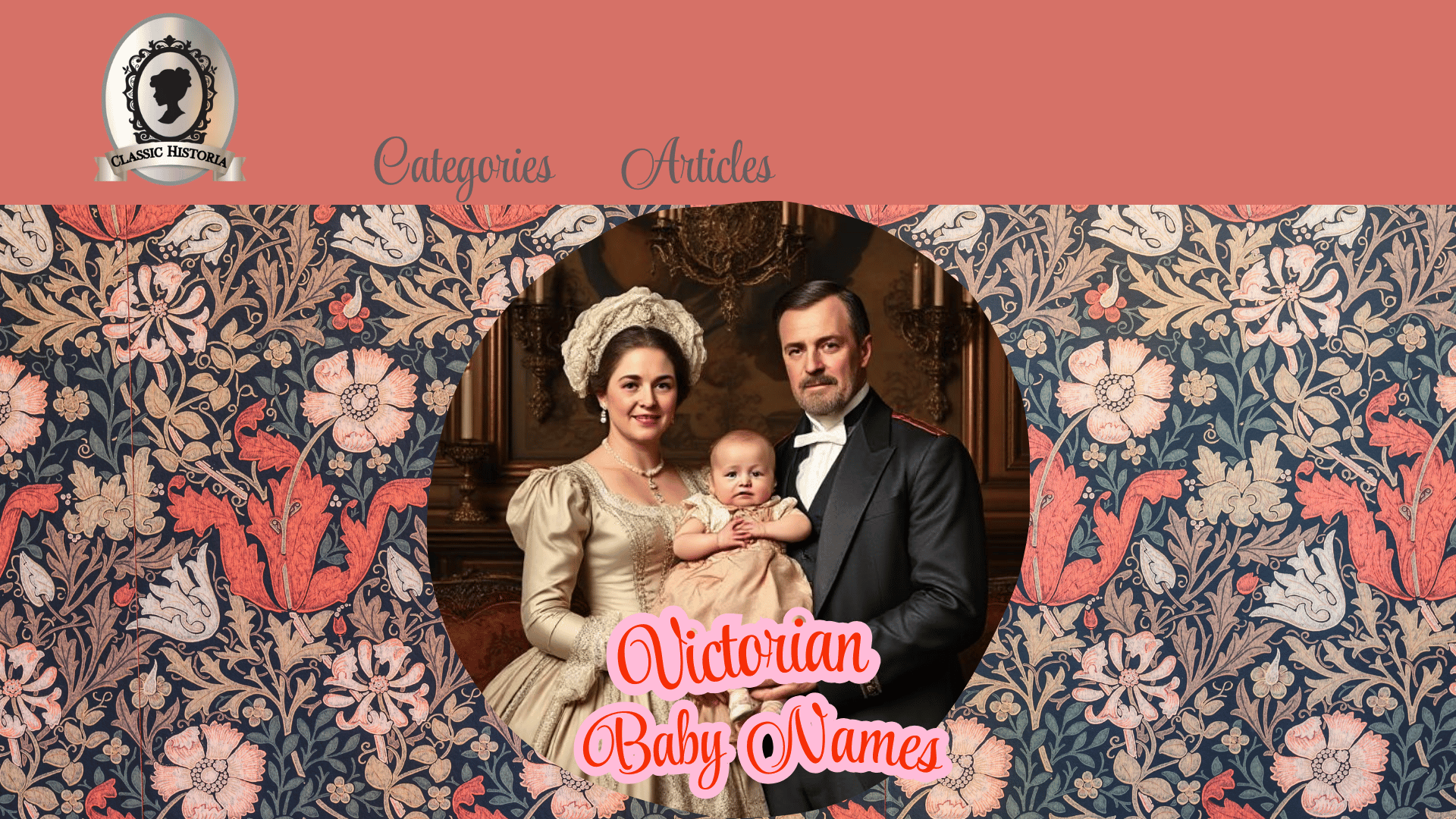
Classic Historia may receive a commission on purchases made through Amazon and eBay affiliate links at no additional cost to you.
The Victorian era left an indelible mark on art, architecture, etiquette, and even naming customs. The most popular Victorian names from this period carry a timeless attraction, steeped in tradition and meaning. For parenting enthusiasts seeking vintage inspiration, name researchers decoding the significance behind titles, or historians unraveling societal norms of the era, Victorian names open a doorway into the past.
Discovering VictorianChildren.org, the Victorian Name Generator
For enthusiasts of the ornate and storied Victorian times, VictorianChildren.org is a treasure trove of history, culture, and creativity. Among its many captivating features, the Victorian Name Generator is an ingenious tool that invites users to explore a list of bygone names. This feature offers a delightful way to immerse oneself in the elegance of Victorian nomenclature while uncovering new inspiration for names rich with character and depth.
How the Victorian Name Generator Works
The Victorian Name Generator is both intuitive and engaging. With just a click, users can generate a variety of names, each steeped in the heritage and grandeur of the 19th century. Whether you're searching for the perfect name for a character in a historical novel, naming a child with a touch of old-world style, or simply exploring the beauty of the past, this tool provides ideas for baby names, which are thoughtfully curated to reflect the values and traditions of the Victorian age.
Why Use VictorianChildren.org?
Beyond the Victorian Name Generator, VictorianChildren.org offers a wealth of resources for those captivated by this enchanting period. From detailed articles on Victorian culture and fashion to educational content about the lives of children during the late 19th century, the website serves as both an informative and inspiring platform. It is ideal for history lovers, writers, educators, and anyone who yearns for a connection to the elegance of a different age.
By blending history with creativity, VictorianChildren.org serves as a unique portal to the past, and its Victorian Name Generator is a shining example of how technology can breathe new life into historical exploration. Whether you're seeking knowledge, inspiration, or a touch of nostalgia, this website welcomes you into a world infused with the refinement and beauty of the Victorian era.
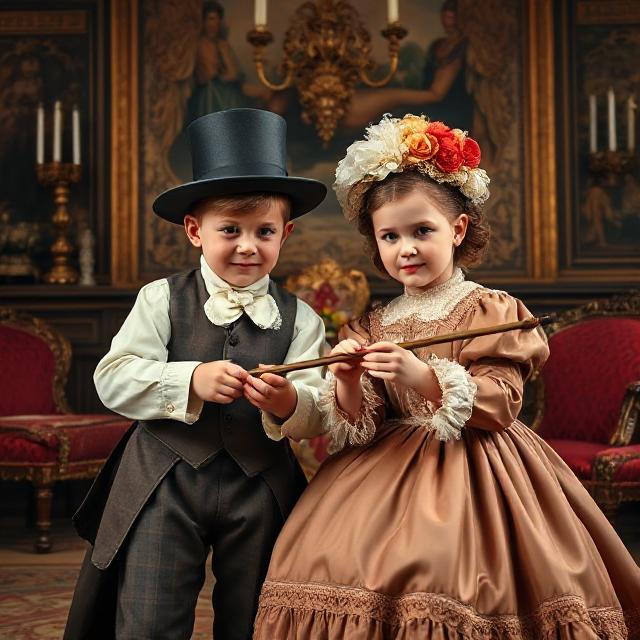
The Elegance of Victorian Naming Customs
Victorian names were a reflection of the era's values—reverence for tradition, admiration for classical beauty, and a deep respect for family heritage. Naming a child during this time was no casual affair; it held value and importance that extended into the very structure of societal identity.
1. Religious Influence
Common use Biblical names such as Mary, Joseph, Matthew, and Elizabeth were incredibly popular. Christianity was at the heart of Victorian life, influencing moral and social practices and the names bestowed upon newborns. Religious names offered a sense of protection and virtue, giving children a name they could carry with pride.
2. Classic Literature and Arts
The Victorians had a penchant for drawing inspiration from revered works of literature and arts. Names such as Ophelia, Arthur, Beatrice, and Rosalind can trace their popularity to the Shakespearean canon, and they remain favorites among Victorian parents seeking poetic elegance.
3. Virtues and Sentiments
Victorian society valued qualities like Grace, Hope, Faith, and Charity. These qualities often translated into virtuous names that were as aspirational as they were symbolic. It wasn't uncommon for girls to be named after virtues, highlighting the moral aspirations of their families.
4. Class and Sophistication
Victorian baby names also carried markers of social class. Aristocratic families leaned toward refined and distinguished names like Evelyn, Clementine, Rupert, and Frederick. These names exuded sophistication and conveyed an air of prestige, setting apart the elite from others.
$28.81
4.69 out of 5 starsVictorian Etiquette for Modern Families and Friends
Discover Timeless Manners and Thoughtful Practices That Strengthen Relationships in Today’s World
Product information
Product Review Score
Product links
Victorian Names for Boys
Victorian boy names often carried strength, nobility, or classical overtones. Parents of the era sought names with historical or familial significance. Here are a few examples:
- Albert: A tribute to Prince Albert and a royal family name synonymous with loyalty and devotion.
- Henry: A timeless, old-fashioned name embodying strength and leadership.
- Charles: A well-known name of royal significance, echoing dignity and grace.
- Walter: A popular choice symbolizing bravery and loyalty.
- Theodore: The meaning of this name, "gift of God" gained favor for its warmth and affability.
Victorian Names for Girls
For girls, names were often chosen for their lyrical charm and grace. Many continue to be popular for their elegance and vintage appeal:
- Clara: Artsy Victorian name of Latin origin meaning "bright" or "clear," cherished for its simplicity and beauty.
- Florence: First name of the esteemed Florence Nightingale, symbolizing compassion and resilience.
- Lillian: Floral names are popular for their association with the lily flower, embodying purity and beauty.
- Matilda: The meaning of this word, "battle strength" resonates with power and charm.
- Harriet: A Victorian girl's name rooted in history, evoking character and poise.
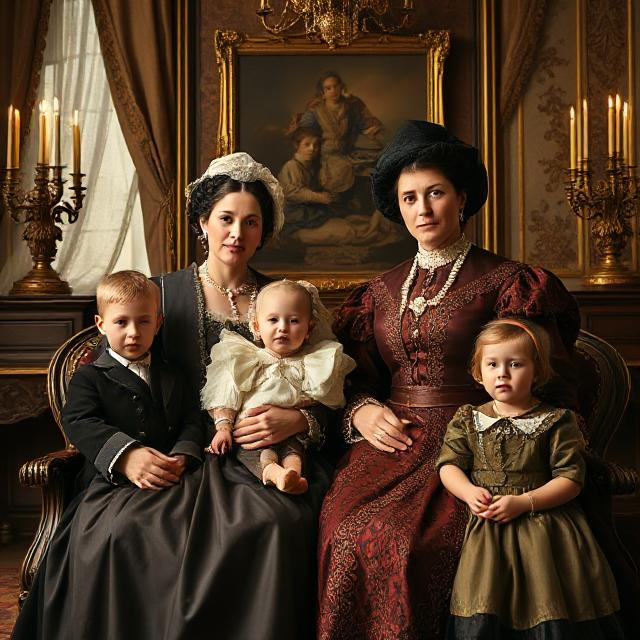
Junior Names: An Exploration of Victorian Naming Practices
The tradition of passing down familiar names from one generation to the next holds a special place in Victorian culture for good reason. During the Victorian era, names were far more than mere labels; they represented heritage, familial pride, and a sense of continuity. The custom of naming a child after a beloved relative, often a parent, grandparent, or even a great-grandparent, was a way of honoring the family’s history and ensuring that the memory of cherished ancestors lived on.
Victorian names often carried meanings that reflected the values and ideals of the time, such as strength, virtue, or beauty. Names like Harriet and Matilda spoke to the qualities of resilience and courage, while Clara and Lillian embodied clarity and grace. By handing these historical names down, families not only preserved traditions but also instilled in their children a connection to the character and aspirations they represented. A child bearing the name of a revered ancestor would often feel a sense of purpose, bound by the legacy that their name carried.
This practice also extended to middle names, which sometimes served as a subtle homage to another branch of the family tree or reflected the influence of religious and cultural roots. Victorian naming traditions thus created intricate threads of connection, uniting generations under a shared identity. Even today, the enduring charm of classic Victorian names reflects this deep-seated reverence for family and the legacy of lasting love and remembrance.
Significance and Style: The Role of Middle Names in Victorian Society
The tradition of using middle names in Victorian England was both a practical and symbolic custom, deeply rooted in the era's cultural and societal values. Emerging initially among the upper classes during the late 18th and early 19th centuries, the practice of assigning a middle name soon gained widespread popularity throughout Victorian society. These additional names served multiple purposes, blending honorific significance with familial and social aspirations.
Middle names offered a unique opportunity to honor loved ones, preserve ancestral ties, or reflect personal virtues. It was common to find middle names derived from a mother's maiden name, thus maintaining a sense of connection to the maternal lineage and showcasing the importance of family heritage. Beyond family connections, middle names could also commemorate influential figures or denote the family's religious faith, with names such as Grace, Faith, or Emmanuel reflecting the piety of the Victorian age.
For families with aspirations of social mobility, middle names were sometimes chosen with strategic intent. Adopting a distinguished family name or an aristocratic-sounding nickname could enhance one's social standing, even subtly signaling ties to nobility or wealth. Similarly, rare or unique middle names were a mark of individuality, serving as a subtle platform for self-expression in an era that often prized conformity.
Legally and practically, middle names also played an essential role in distinguishing individuals. With common first names such as Mary, John, or William frequently repeated within communities, adding a middle name helped prevent confusion in legal records and personal correspondence.
The enduring use of middle names during the Victorian era reflects a society deeply attuned to the values of family honor, social aspiration, and legacy. More than a simple addition to one’s given name, the middle name became symbolic—a thread weaving personal identity with the cultural and familial fabric of the time. Even today, the echoes of these traditions remain evident in naming practices, subtly linking modern naming conventions to their Victorian forebears.
4.6 out of 5 starsVictorian Life: A Complete Guide for Enthusiasts
Discover the Charm of the Victorian Era and Explore the Intricate Details of Daily Life, Fashion, and Culture
Product information
Product Review Score
Product links
Hyphenated Names: The Victorian Practice and Purpose Behind Dual Surnames
The Victorian era, renowned for its emphasis on tradition and social propriety, also saw the rise of hyphenated names as a distinctive naming practice. These names, often combining the lineage of two families or commemorating influential relatives, served as more than just a creative flourish. Hyphenated names symbolized the merging of heritage, a gesture that reflected the importance placed on family alliances, social standing, and the perpetuation of familial legacies.
Parents in Victorian society frequently sought ways to honor familial bonds and elevate their children's status within social circles. By hyphenating surnames or combining significant family names, they could effectively cement connections to two prominent lineages. For example, coupling a mother’s distinguished maiden name with a father’s surname could pay homage to both sides of a family, while simultaneously bestowing a sense of distinction upon the bearer of the name.
This practice was also closely intertwined with the Victorian preoccupation with legacy and inheritance. Hyphenated names often indicated ties to estates or wealth, signaling continuity and prominence across generations. A child with a hyphenated surname might be seen as both a custodian of familial heritage and a person of elevated stature, with their very name serving as a reminder of enduring social aspirations. Such naming conventions resonated with the era’s broader preoccupation with class distinctions, making hyphenated names more than a personal choice—they were a cultural statement.
Though the use of hyphenated names reached its peak in the Victorian age, its influence persists in modern times. Today, hyphenated names can still be found, often reflecting similar motivations of honoring heritage or blending identities. The Victorian legacy of such naming practices continues to be a testament to the enduring power of names as markers of identity, connection, and aspiration.
Yes, Victorians did make use of hyphenated names, and their adoption was often tied to matters of heritage, property, and social standing. These names typically arose from the merging of two family surnames, usually through marriage or inheritance, as a means of preserving both family legacies. For example, in cases where a family had no male heir, a daughter’s surname might be joined with her husband’s to ensure the continuation of the family name. Hyphenated names became a marker of prestige and lineage, signifying a connection to notable families and their estates. This practice not only reflected familial pride but also reinforced the societal importance of legacy and tradition during the Victorian era.
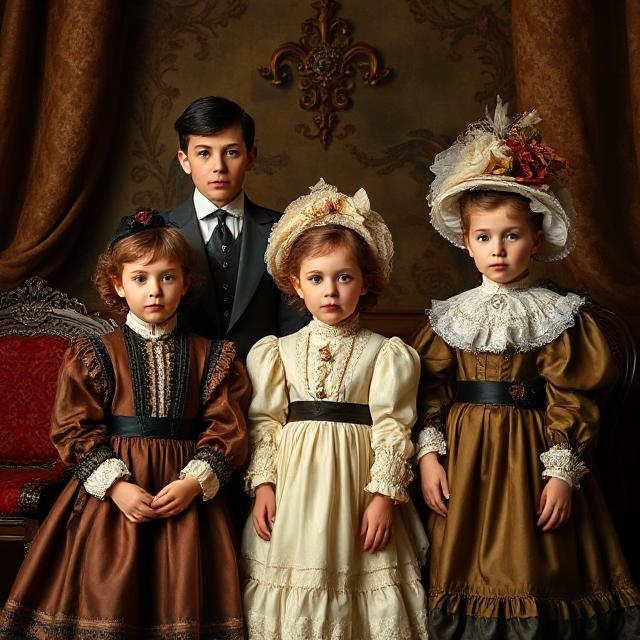
The Old-Fashioned Charm of Victorian Nicknames
The Victorian era, renowned for its propriety and elegance, also saw the rise of charming and sometimes peculiar nicknames that reflected the customs and character of the time. These short name monikers, often derived from given names or personal traits, embodied both affection and a glimpse into societal values. Nicknames in the Victorian period were imbued with intimacy and sentimentality, frequently used within families and close social circles to convey warmth and familiarity.
Traditional names such as Elizabeth and William transformed into Lizzie and Willie, reflecting a playful yet endearing approach to personalization. Among the aristocracy, nicknames were sometimes a means of affectionately marking an individual’s unique personality or achievements. On the other hand, in working-class communities, such names offered a sense of camaraderie and belonging, as they softened formalities in an era where decorum reigned supreme.
Beyond mere simplicity, the creation of Victorian nicknames often displayed linguistic creativity. For instance, Margaret frequently became Daisy, a whimsical twist inspired by an old French word for the flower. Similarly, Henry could transform into Hal, while Mary often became Polly. These inventive adjustments showcased the era’s appreciation for poetry and nuance, instilling even the most common names with a sense of distinctiveness.
Nicknames also played an important role in written correspondence, where they instilled letters with a personal touch. A husband might address his wife with a pet name, or a parent might sign a note to their child with a fond adorable name. This practice not only reflected affectionate bonds but also aligned with the Victorian favor for sentimental expressions, visible in everything from literature to daily communication.
The legacy of Victorian nicknames endures to this day, offering a fascinating lens into the social tradition of the time. They remind us that even in an era of rigid formality, there was room for creativity, warmth, and a personalized touch that transcends the centuries.
The Evolution of Victorian Names in Modern Times
Fast forward to the present times, Victorian-era names are experiencing a resurgence. With their timeless allure, they have become favorites for parents seeking classic names rich in history and meaning. Parents interested in period dramas, readers of classic literature, and even antique collectors often assign Victorian names to evoke nostalgia and authenticity.
The digital age has further fueled interest in these antique, 19th century names. Social media platforms, baby name forums, and genealogy groups are abuzz with discussions of naming trends from bygone eras. The romance of the Victorian era, infused with its cultural heritage, makes its name irresistible for those drawn to Victorian history and elegance.
Like this article? Discover more at Classic Historia for a deeper exploration into the past that has shaped our world.
